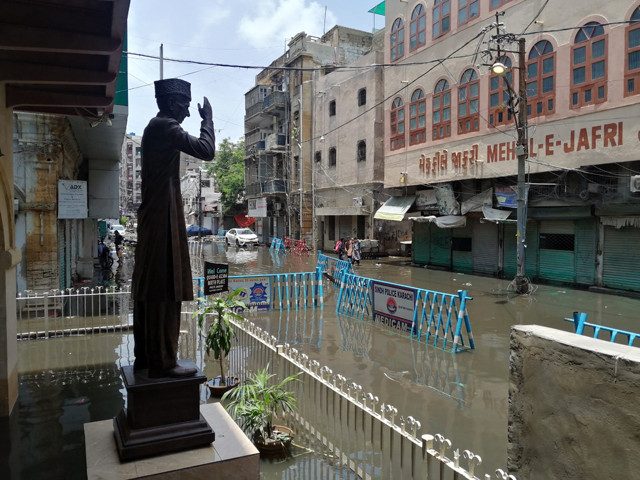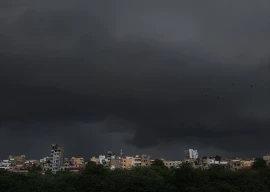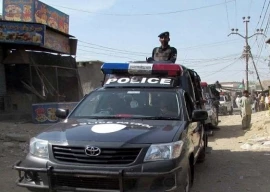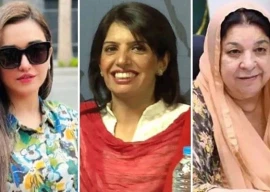
The global livability index has been at odds with the port-city for the past several years, but it’s latest blow came last month when it placed Karachi at the bottom of its list, making the country’s financial hub the fourth worst place to live.
Although not too great a slump from being ranked among the ten most unlivable cities, being listed in worst five was definitely something that left a sour taste in many a mouths.
However, if that was not a reality check enough, the aftermath of the week’s torrential rains have started to put things into perspective; magnifying all the fault-lines that criss-cross through factors like healthcare, culture, environment, education, and infrastructure that the city is built upon.
This realisation, although bitter, has led the city’s population of more than twenty million to ask the most essential question: who is responsible for pushing Karachi into dire straits?
Per the opposition parties, it is the sole doing of the provincial and the federal government who take from the city with both hands but give with none. The ruling Pakistan People’s Party (PPP), that has held sway over the province of Sindh for as long as memory serves, however disagrees with the blanket statement. In their eyes, it is The Economist Intelligence Unit’s global livability index that has been unfair to the port city in its ranking.
“Despite many shortcomings and problems, Karachi is still a more livable city [than others rated higher on the list]. That is why people from all over the country come and live here, making it one of most populous cities,” reasoned PPP’s centeral leader Senator Taj Haider. According to him, people from neighbouring Afghanistan, a war-torn state, coming to Karachi for medical aid is a gleaming testament of the city’s extraordinary healthcare standards.
While Karachi’s burgeoning population is certainly hard to miss, MQM’s Karachi-elected Sindh Assembly member and former Local Government Minister Muhammad Hussain believes that the provincial and federal government have still somehow managed to turn a closed eye and a deaf ear to the people of this city. “Karachi is the largest city in terms of population, that generates up to 70 per cent of the country’s revenue. However, not even a fraction of that is given back to the city for development, which is why the people here still have to struggle for access to basic necessities like potable water, healthcare and electricity,” he alleged, adding that it is a shame that local bodies like the Karachi Metropolitan Corporation (KMC) are not even privy to collection of property taxes which could be used to develop the city.
Former Karachi Metropolitan Administrator Faheem uz Zaman Khan also holds the federal government responsible for keeping resources from the city and making policies that ensure its place in then lowest tiers of the global ranking. “Take for instance the JICA report, per which the population of Karachi was more than 25 million in 2020. While the 2017 census conducted at the behest of the centre reduced the city’s population to a controversial figure of just 16 million people,” he said, implying that a smaller population would mean lesser resources allocated to the region.
The search for the main culprit responsible for Karachi’s decline has been going on for years. The question is often tabled in civil society gatherings, especially after a fresh crisis pertaining electricity or water, which happen to be among city’s most scarce resources.
Like always, this seems to be the stakeholders’ cue to start playing hot-potato with the blame, tossing it from one body to another until the concerns lose momentum and the ordeals of life distract the people.
“There is no one person responsible for Karachi’s downfall. It is rather a work of collaborative effort going all the way back to the regime of President Ayub Khan and the rise of land mafia that opened the city to illegal housing,” commented Aisha, a recent graduate of architecture. “Everyone who came after him has contributed to the city’s decline, bringing us to where we are today but no one is ready to take responsibility for it,” she added.
Although, like Aisha, people of Karachi fail to pin a single body responsible for the city’s state, many still believe that the city’s inability to escape its misery is rooted in the lack of power afforded to the local government. Per them, taking Karachi out of the shame list would merit a systematic overhaul. “The city now needs an integrated and empowered local government system. Under this system, the government should transfer powers to the level of union committees who understand Karachi much better,” commented Malik Zafar, a civil society member who thinks that various short, medium and long term development plans are needed to mitigate the city’s fault lines. “Currently, we are faced with a crisis on all fronts, be it education, healthcare, environment, housing or infrastructure. That is a lot of ground to cover, which means that the government will need to join hands with the people and reimagine development that is not ad hoc,” Shahnaz Akhtar, another citizen who laments the Karachi’s state.
Experts in the field of planning and development seem to agree with the civil society when talking about a better future for the city of Karachi. Per Sir Syed University’s Architecture Department Head Fazal Noor, there are three things essential to improving a city’s livability rating: a fair and empowered local government, people’s access to information and an excellent infrastructure. “The best cities in the world have an elected local government system, where elected representatives are in direct contact with the people, and information on each institution is is made accessible to the public. That is why the people in such cities trust their local government and pay their taxes on time. As long as there was a strong and powerful local government system in Karachi, unprecedented development work also took place in the city, people were happy and it was considered a livable city all over the world. The job of the provincial government is not to carry out local government affairs, but rather to legislate,” he told The Express Tribune.
Published in The Express Tribune, July 18th, 2022.





















COMMENTS
Comments are moderated and generally will be posted if they are on-topic and not abusive.
For more information, please see our Comments FAQ